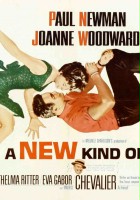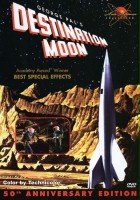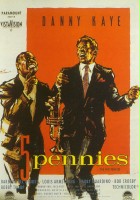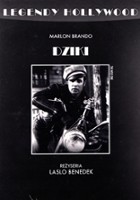
Leith Stevens urodził się w Mount Moriah w stanie Missouri. Był cudownym pianistą, który akompaniował wokalistce operowej i artystce wczesnych nagrań dźwiękowych Madame Schumann-Heink. Podczas II wojny światowej Stevens pracował jako dyrektor radiowy dla obszaru południowo-zachodniego Pacyfiku w Biurze Informacji Wojennej Stanów Zjednoczonych. Był dyrektorem muzycznym serialu Three Thirds of a Nation, emitowanego w środy w NBC Blue Network, wyprodukowanego przez War Production Board (WPB).
Już w 1934 roku Stevens działał w radiu. Stevens pracował jako aranżer dla radia CBS, a jego liczne występy radiowe na przestrzeni kilkudziesięciu lat obejmują The Abbott and Costello Show, Academy Award Theatre, Action Eighty, American School for the Air, Arch Oboler's Plays, Big Town, The Black Book, CBS Radio Workshop (później nazwane Columbia Workshop), The Doctor Fights, Encore Theatre, Escape, The Free Company Rogue's Gallery, The Burns and Allen Show, The Judge, Lights Out, Men Against Death, The Miracle of America, No Help Wanted, Request Performance , Saturday Night Swing Club, Suspense i melodramat radiowo-kryminalny Yours Truly, Johnny Dollar.
Koncert fortepianowy c-moll Stevensa był jego pierwszym dziełem wykorzystanym w kinie w hollywoodzkim filmie Night Song z 1947 roku. W fabule filmu koncert był dziełem fikcyjnego kompozytora granego przez Danę Andrews. Arthur Rubinstein wykonał koncert na fortepianie z towarzyszeniem New York Philharmonic pod dyrekcją Eugene'a Ormandy'ego. Muzyka jest utrzymana w tonacji poziomej (w odróżnieniu od pionowej) kompozycji, z wyrafinowanymi harmoniami i wymagającymi wirtuozerskimi fragmentami fortepianu. Dzieło jest pod wpływem Deliusa, Rachmaninowa i Gershwina i jest zarówno impresjonistyczne, jak i romantyczne.




| Syncopation (1942)/ Night Song (1948)/ All My Sons (1948)/ Feudin', Fussin' and A-Fightin' (1948)/ Larceny (1948)/ Not Wanted (1949)/ The Great Rupert (1950)/ Destination Moon (1950)/ The Sun Sets at Dawn (1950)/ No Questions Asked (1951)/ When Worlds Collide (1951)/ The Atomic City (1952)/ Storm Over Tibet (1952)/ Beware, My Lovely (1952)/ Eight Iron Men (1952)/ The Hitch-Hiker (1953)/ The Glass Wall (1953)/ The War of the Worlds (1953)/ The Bigamist (1953)/ The Wild One (1953)/ Private Hell 36 (1954)/ Crashout (1955)/ The Treasure of Pancho Villa (1955)/ The Scarlet Hour (1956)/ World Without End (1956)/ Julie (1956)/ The Garment Jungle (1957)/ Lizzie (1957)/ Ride Out for Revenge (1957)/ Eighteen and Anxious (1957)/ The Green-Eyed Blonde (1957)/ Seven Guns to Mesa (1958)/ Violent Road (1958)/ Bullwhip (1958)/ The Gun Runners (1958)/ But Not for Me (1959)/ The Gene Krupa Story (1959)/ Hell to Eternity (1960)/ The Interns (1962)/ A New Kind of Love (1963)/ The Night of the Grizzly (1966)/ Smoky (1966)/ Chuka (1967)/ Assault on the Wayne (1971) |
| Oscar [Muzyka filmowa] Nominacje do Oscara [Muzyka filmowa] 1964 Best Music, Scoring of Music, Adaptation or Treatment Nowy rodzaj miłości 1960 Best Music, Scoring of a Musical Picture The Five Pennies 1957 Best Music, Original Song Julie Golden Globe Grammy |

Brak komentarzy:
Prześlij komentarz